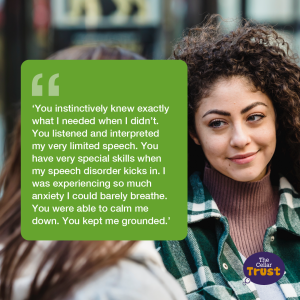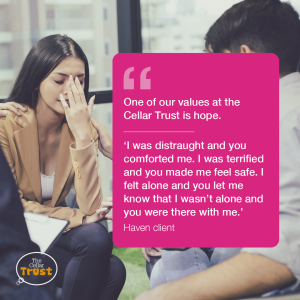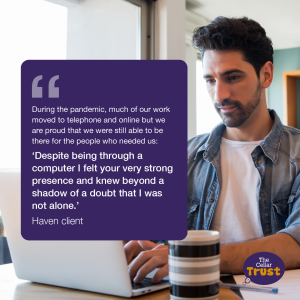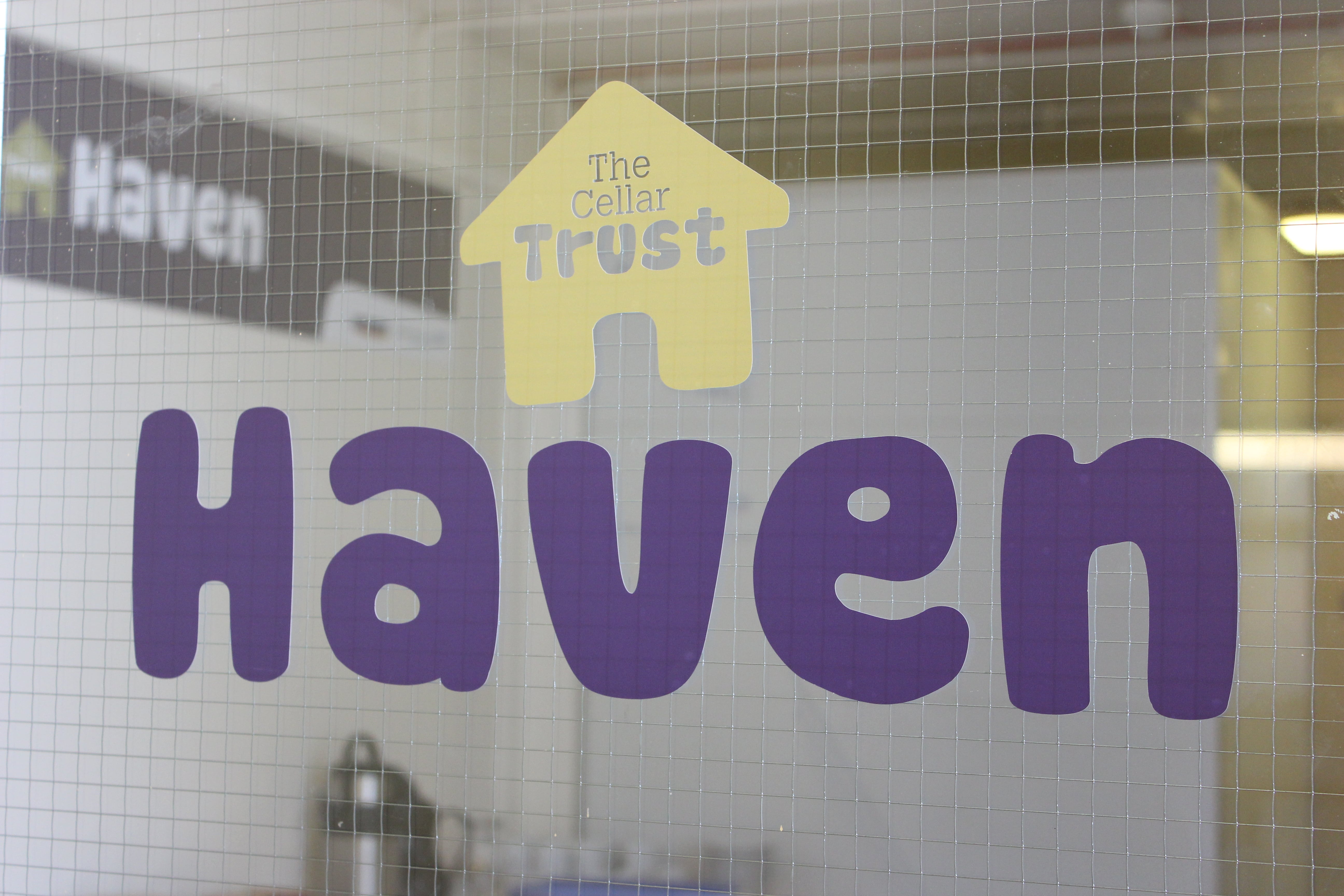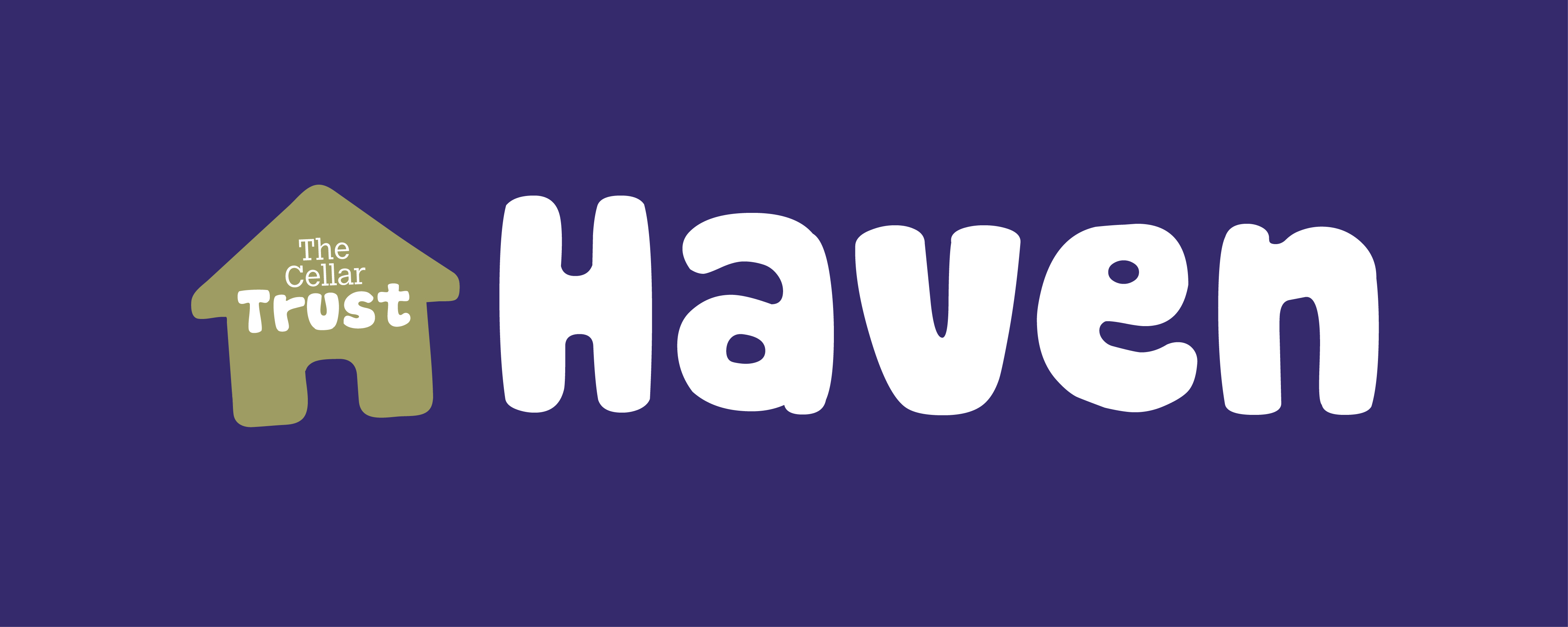Haven – the end of an era
Written by Kim Shutler, CEO, The Cellar Trust
Today marks the end of an era for The Cellar Trust as we draw our Haven crisis service to a close. It feels momentous for us because Haven was the real game changing service for us when it opened in August 2016. Lots will remember, but many will not, that before that date The Cellar Trust looked very, very different. We had one single service (Pathways to Employment), no peer support staff and the upstairs of our building was rented out for events and groups. The opportunity for transformation came along in the form of some one-off transformation funding (NHS Vanguard for those who remember it), and a tiny window of opportunity to try something new. I still remember the conversations with colleagues in BDCFT and BMDC about whether it was possible. Some of these colleagues have moved on now but it was those people who decided to take a chance on a new innovative approach and paved the way for the future.
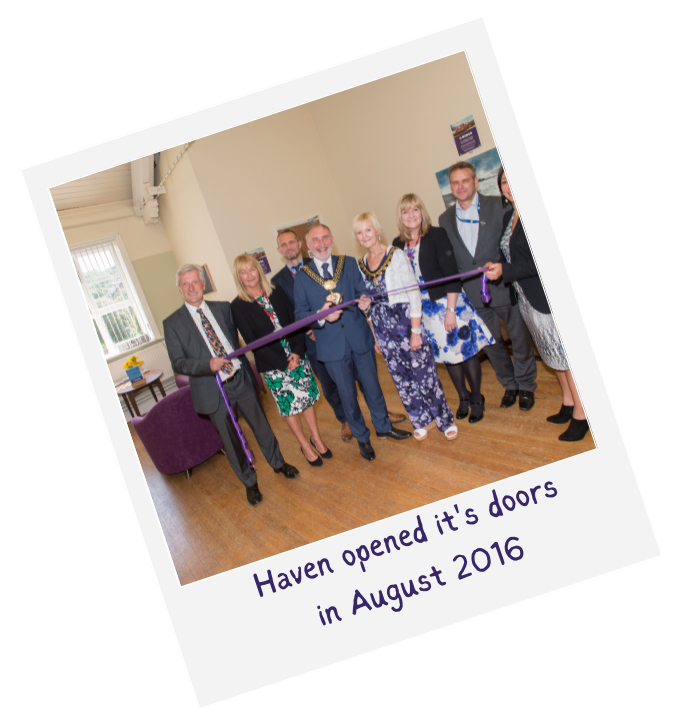

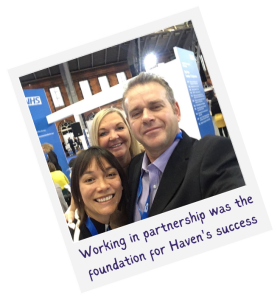
The money was tight and the turn-around for launching was tighter… but we had the community building (ideally situated half-way between Bradford and Keighley), the volunteers and the support from local businesses. The NHS had some funding, the local authority had some staff they could realign. A mark in the sand was a shift in conversation from the traditional ‘commissioner-provider’ discussion… traditionally commissioners tell us what to do and how much money there is, we do it and then we report back every quarter. No they said… we will design this together… and we will lead it together. And that is exactly what happened.
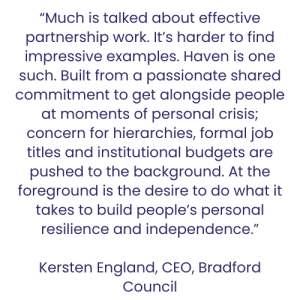
It was our first venture into Peer Support (3 Peer Support Workers) and we created a co-located team including the BDCFT Intensive Home Treatment Team and BMDC social workers. We had to transform our building… NHS Estates telling us that there was NO WAY we could deliver what we needed to on time and on budget. Of course. we did both, and the space was beautifully kitted out with thanks to a local furniture company, with the support of Nick Smith (Missing Peace) who used his lived experience to help ensure we had the right environment for people.
We had been to see other services around the country but none were what we really needed in Bradford. We took lots of learning from others, of course, but then we made it our own. This is what we now know as ‘Act as One’ in real action… we pulled out all the stops working across services, meeting every week, looking at the data and the feedback, making constant tweaks and changes to make things work. I remember in the beginning being really worried as numbers were so low. Oh how we laugh now looking back as so quickly people got to know about our new service and the challenge became one of capacity. The service today looks so different to the service we started in 2016 but that is a credit to how the team have stayed true to our value of continuous improvement – always looking for ways to be better.
Our approach to integration – working as one team – was the thing that lead to further big changes for us as an organisation. We learnt more about the way that mental health clinical services and social care worked, we developed our governance, we trained up our team… The co-location was incredibly powerful. Cross-organisational teams lead to much learning which I believe has helped to shift the culture. Other areas of the NHS saw the power of the integration with the VCS… they also saw the immense skill of our team to manage complexity and risk, and that that could complement statutory work.
Conversations between statutory staff and peer support workers… difficult conversations to break down the stigma, to challenge terminology which has become engrained around things like personality disorder… these are the things that change cultures. We learnt the hard way too. I look back and think how little we knew then about how to do peer support well. But as we always do, we learn and we improve. We saw the power of peer support and we eventually not only moved to a whole Haven peer support team but we extended this approach to where we are 6 years later with all our Cellar front line staff recruited as peers, our own accredited peer support training, and a national reputation for our expertise in this area.
Of course, the most important thing is the difference we have been able to make through the delivery of this service which is very humbling. Consistently over the years people have told us that we provide a safe space where they feel listened to and understood. It has been the most basic of human things that we would all want for ourselves and those we love. In a short time people move from feeling that there is no hope at all; experiencing their very darkest moments to feeling like there is a possibility of something different… a brighter future. Peer support has consistently played an incredible role in this and, in fact, in our most recently client survey 96% of our clients said this was important.
There really aren’t enough words to say how proud I am of the team we have now and the teams we have had in the past. When you do jobs like this, you give your all and that can be very tough. But whatever has been going on (and we have faced a major fire and Covid), our team have pulled it out of the bag. They have left their families at weekends and over bank holidays to work every day of the year. They have done everything they could to be there for those who need us the most. I don’t feel like it is an exaggeration to say that they have changed and saved hundreds, even thousands of lives in the past 6 years. Not many people can say that and it is a very privileged position. I cannot thank them all enough.
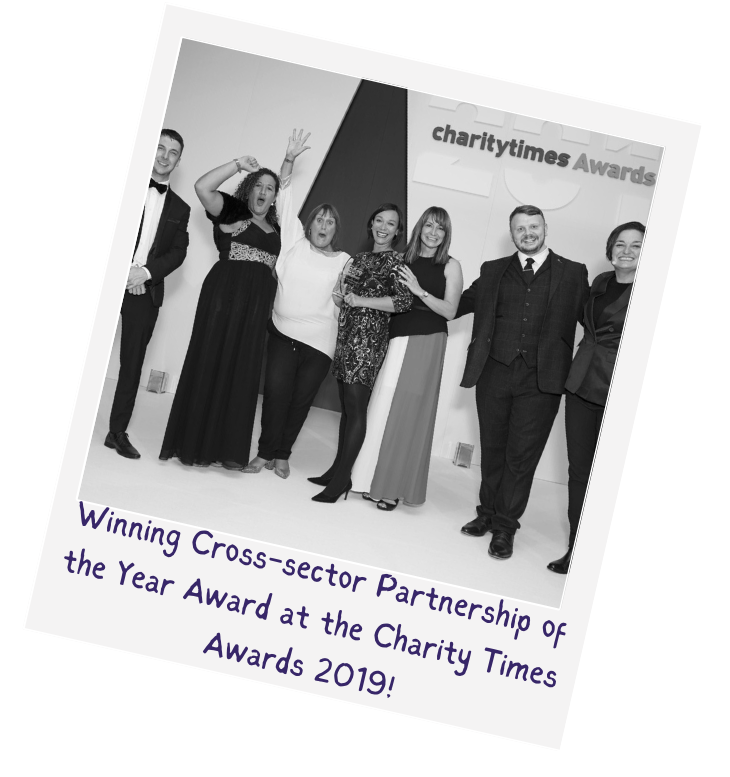
I would also like to thank our partners and funders. It has been their support which has made all the difference. When you run services which are new, innovative and different… services which challenge the norm, it requires bravery and tenacity.
There are colleagues in the NHS and local authority who have stood by our sides all along and for that we are very grateful. These things have changed the way we do things in mental health services forever. These people are part of our team in the same way as our Cellar employees and they have laid the path for other services we now deliver such as MAST. It is easy to forget how things used to be so I am partly writing this now so that people do not forget.
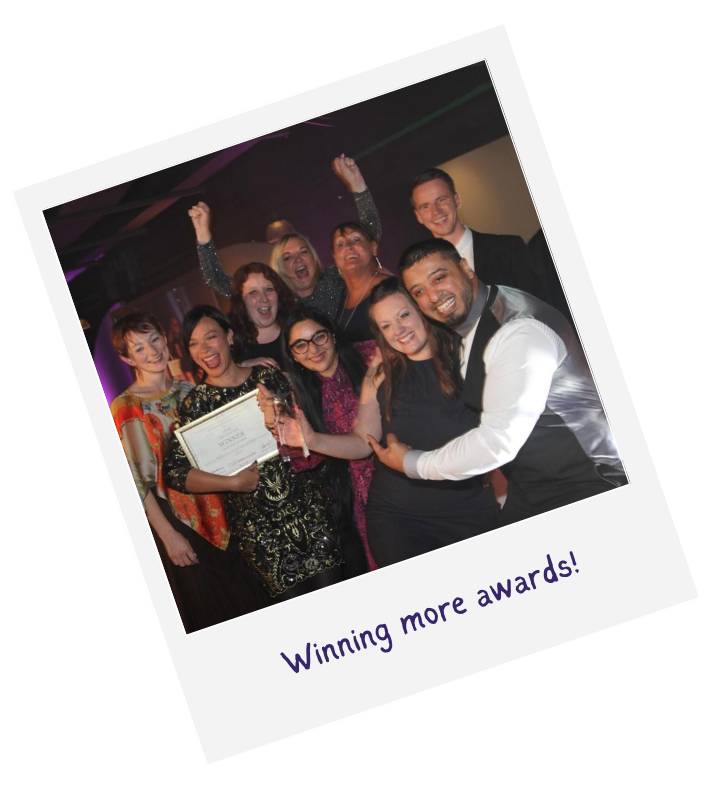
We have been incredibly passionate about sharing our learning far and wide and have welcomed organisations (providers and funders) from all over the country and even from as far as Japan. We have spoken nationally alongside our BDCFT and BMDC colleagues about the power of our integrated approach and we have been recognised with awards such as the Positive Practice in Mental Health Award for Crisis and Acute Care (2018), Charity Times Cross Sector Collaboration (2019) and Locality Transforming Lives (2021.) We have also spread the ‘Haven love’ and influenced national policy through our work with the NHSE Adult Mental Health team who credited us in influencing the roll out of the most recent Crisis Alternatives funding.
And now we move into a new and exciting chapter. It is an opportunity to work with even more amazing partners (11 other charities) as we deliver the new Safe Spaces provision in the District. This will allow us to build on the wonderful work in Haven, and in the other local safe spaces (Sanctuary at Mind in Bradford and Towerhurst), extend our reach and support even more people. These services are needed more than ever so we look ahead with excitement about what is next.
